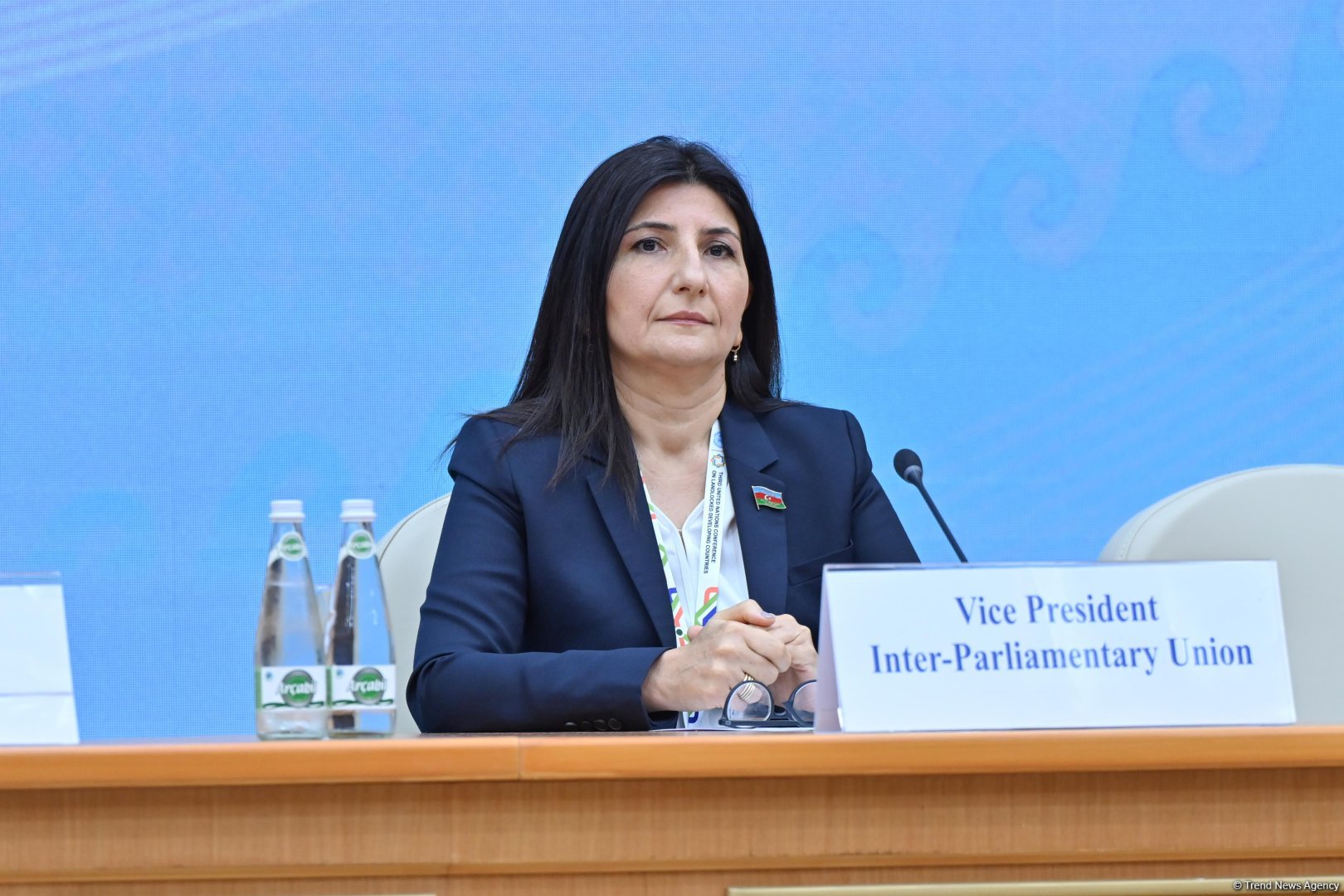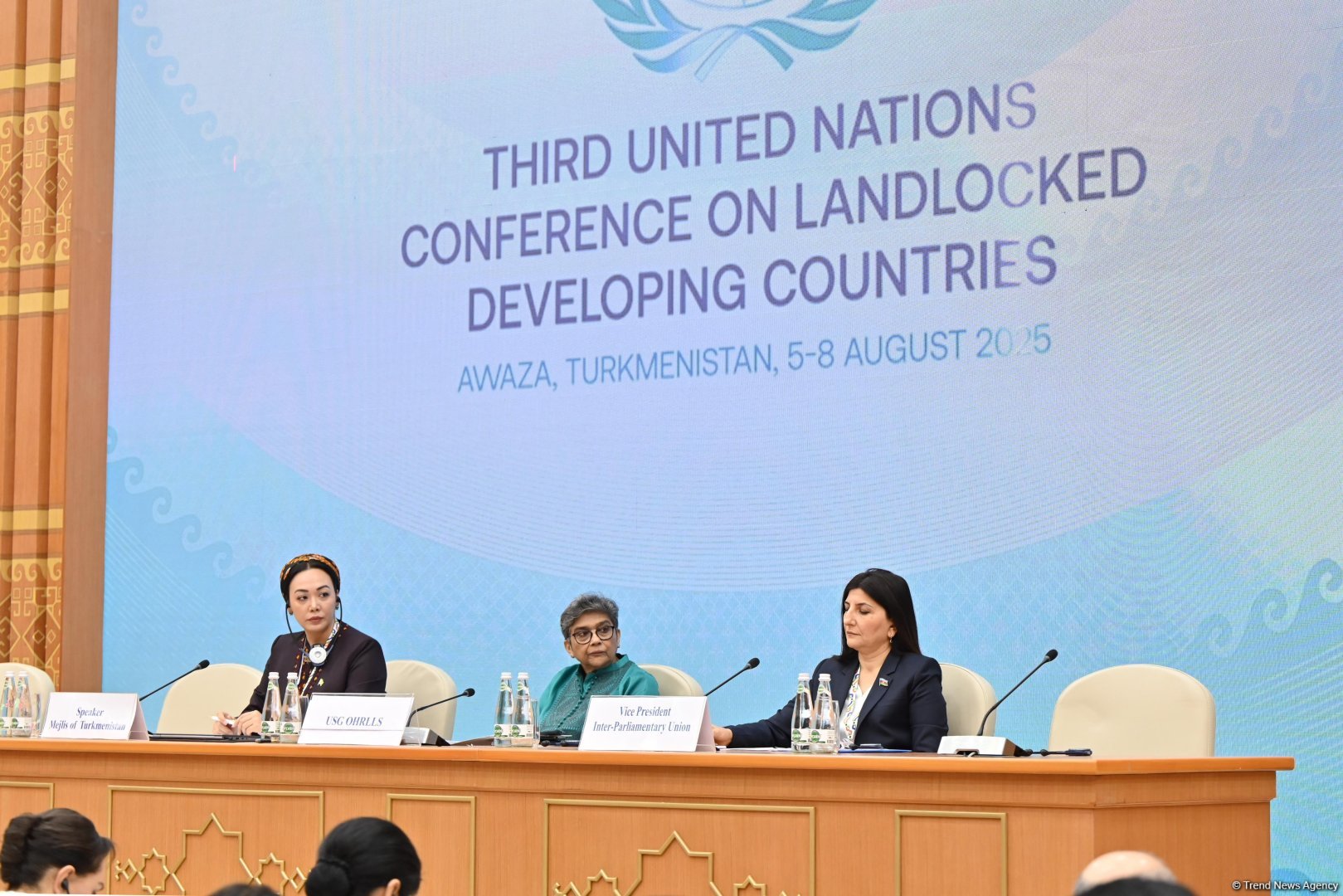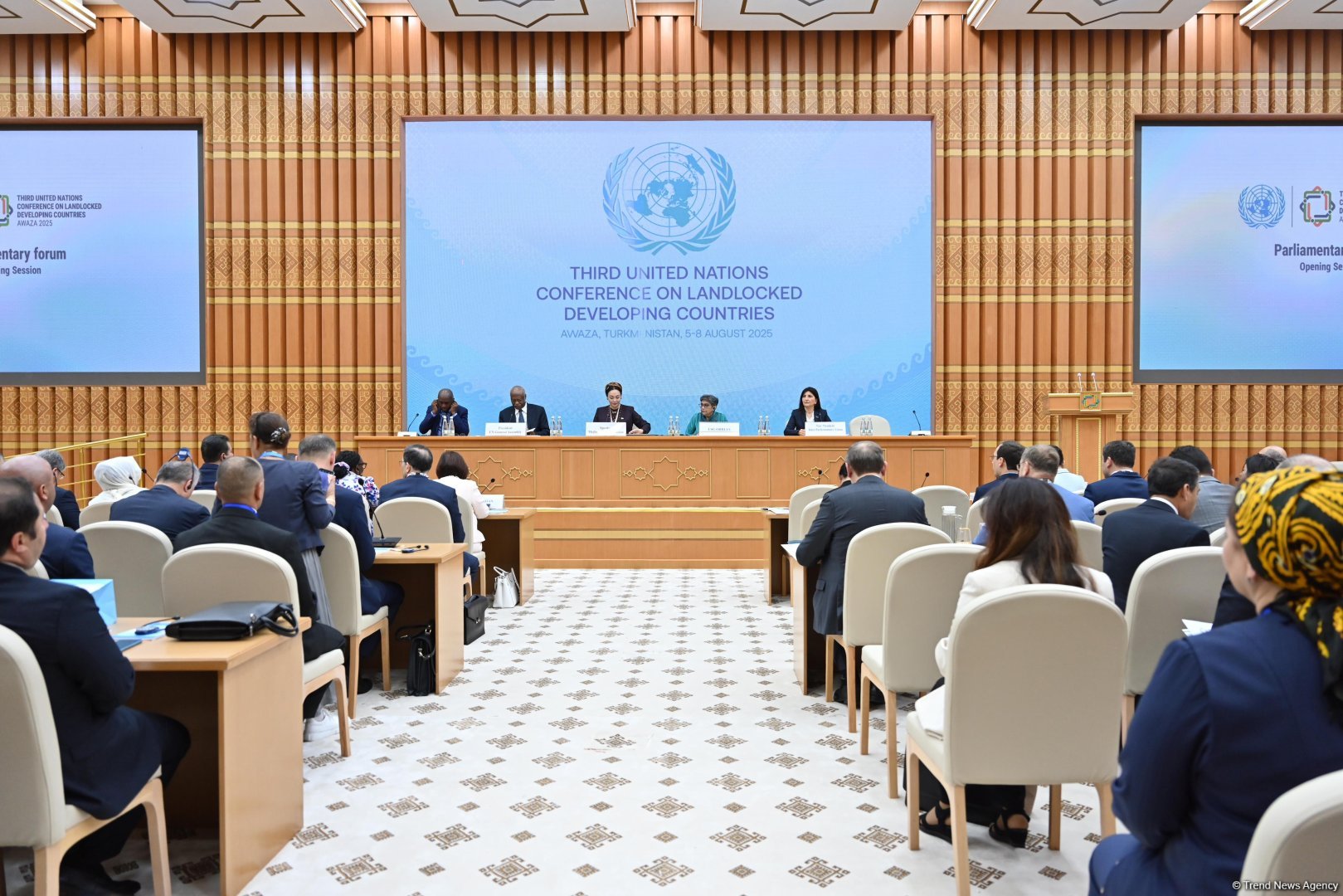BAKU, Azerbaijan, August 5. At the request of Martin Chungong, Secretary General of the Inter-Parliamentary Union (IPU), and with the consent of Sahiba Gafarova, Speaker of the Milli Majlis (Parliament) of Azerbaijan, Vice-President of the IPU from Azerbaijan, Member of the Milli Majlis Sevil Mikayilova presented a report on behalf of the IPU at the Parliamentary Forum within the framework of the 3rd United Nations Conference on Landlocked Developing Countries (LLDC3) in Awaza (Turkmenistan) on August 4, Trend reports.
Presenting the report, S. Mikayilova noted that the IPU is ready to support parliaments wishing to strengthen their role in promoting sustainable development in landlocked countries.
''As Vice President of the IPU Executive Committee, I am delighted to be here with you today and to welcome you on behalf of the Inter-Parliamentary Union and its leadership, President Tulia Ackson and Secretary-General Martin Chungong, '' she noted.
The IPU Vice-President said that the forum was devoted to an important topic: “Charting the Course, Advancing the Awaza Program of Action for LLDCs.”
''This theme goes beyond policy direction. It is a rallying cry. It acknowledges both the urgent challenges and the untapped potential facing the 32 landlocked developing countries, home to more than 550 million people. As legislators, our responsibility is to transform international commitments into tangible national progress,'' the MP said.
S.Mikayilova emphasized that Sustainable Development Goals and the Awaza Program of Action are not separate tracks. They are intrinsically linked.
''Both urge us to strengthen our institutions, promote inclusive and sustainable economic growth, and above all, to face the climate crisis with unity and resolve. For over two decades, the IPU has partnered with UN-OHRLLS and co-hosted parallel parliamentary forums to major conferences. We have also actively contributed to policy dialogues to help foster sustainable development, innovation, and meaningful partnerships that can drive real progress in these countries,'' Mikayilova said.
The Vice President of the IPU recalled that many LLDCs remain among the world's poorest, with 16 also classified as least developed countries.
''Their landlocked status imposes high trade costs, impedes diversification, and limits access to global markets. At the same time, these countries are on the front lines of the climate crisis, facing increasing exposure to disasters and setbacks in human development. The Awaza Program of Action responds to these urgent realities. It provides concrete guidance on enhancing transit connectivity, investing in renewable energy, fostering regional cooperation, and driving structural transformation. These priorities align directly with several key SDGs, particularly Goals 7, 9, 13, and 17. As parliamentarians, we must support these priorities with strong legislation, sound public investment, and sustained oversight. This is not only a matter of development, it is a question of equity and resilience in a changing world,'' Mikayilova noted.
The MP emphasized that parliaments are uniquely placed to bring the Awaza Program of Action to life.
''This bold agenda offers practical solutions in areas like trade facilitation, infrastructure, technology, and climate adaptation. It also creates an opportunity to better align domestic action with regional strategies and global frameworks, ensuring a coherent path to sustainable and inclusive development. But what does it mean in practice? These are several key actions we can take.
First, support the integration of the Awaza Program of Action into national legislative frameworks and planning processes. The Awaza Program of Action offers a valuable lens through which LLDCs can accelerate sustainable and inclusive development, helping to ensure coherence between national priorities and international commitments in a way that is specific to the region. Raise awareness among fellow legislators and key committees. The Awaza Program of Action is a pathway to economic diversification and value creation, enabling LLDCs to move up the global value chain and reduce dependency on raw commodities. And last, mobilize resources and partnerships to help LLDCs build the infrastructure they need, not only to trade but to thrive. Investment in connectivity, green energy, and innovation is essential to building resilience and unlocking long-term prosperity,'' Mikayilova noted.
The IPU Vice-President remarked that IPU stands ready to support parliaments wishing to deepen their engagement and strengthen their role in advancing sustainable development and climate action in LLDCs.
The LLDC3 Parliamentary Forum engaged with all relevant stakeholders, including the Inter-Parliamentary Union (IPU) and the Commonwealth Parliamentary Association (CPA).
The Parliamentary Forum focused on the role of Parliaments in the implementation of the Awaza Program of Action (APoA). After reflecting on the main challenges as well as the opportunities faced by the LLDCs today, four critical issues were discussed: unresolved changes and lessons learned from the Vienna Program of Action, the multilateral trading system, good governance and accountability, and partnerships.
This event catered to the members of parliament attending the LLDC3 as part of their national delegations. The forum consisted of a high-level opening segment followed by interactive panel discussions featuring members of parliament, United Nations officials, academics, and representatives from other international organizations, the private sector, and civil society.














